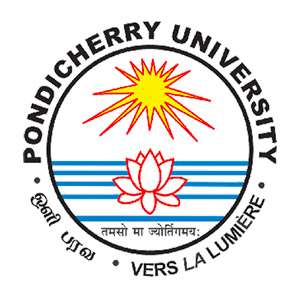Edusure – Best MA Economics Entrance Coaching in India
MA Economics Admission Procedure
Admission is through an entrance test. (CUET PG 2024)
Pondicherry University MA Economics & CUET PG Past Year Papers
Eligibility Criteria for Pondicherry University MA Economics
Candidates must have a Bachelor’s degree in Economics (with Quantitative Techniques/Statistics) or any Bachelor’s degree in Social Sciences with Economics as a subject, along with mathematics as a subject at the +2/Higher Secondary level. Alternatively, a Bachelor’s degree in Commerce or Bachelor’s degree in Engineering/Mathematics/Statistics/Operations Research/Cooperation and Banking with a minimum of 50% marks, as recognized by Pondicherry University or the UGC, is required.
No. of Seats for Pondicherry University MA Economics
The program has a total of 78 seats available.
Fees for Pondicherry University MA Economics
The tuition fees per semester is INR 3000
Economics (COQP10) Syllabus for CUET PG 2024
Microeconomics
Consumer Theory:
Demand, Utility, Indifference Curve, Revealed Preference Theory, Consumer Surplus. Production Theory: Production Function, Law of Variable Proportions, Returns to Scale, Cost Function.
Price and Output Determination in Markets:
Perfect and Imperfect Competition, Monopoly, Price Discrimination, Monopolistic, Duopoly, and Oligopoly models, General Equilibrium, Efficiency, and Welfare.
Macroeconomics:
National Income Accounting. Income and Output Determination: Aggregate Demand and Aggregate Supply, Effective Demand Principle, Classical and Keynesian Theory.
Money and Inflation:
Demand and Supply of Money, Money Multiplier, Credit Creation, Role of Reserve Bank of India, Quantitative Theories of Money, Philip’s Curve, Monetary and Fiscal Policy of India.
Consumption and Investment Function:
Permanent, Relative, and Life Cycle Hypothesis, Multiplier and Accelerator.
Open Economy Models:
Mundell and Fleming Model, Balance of Payments, Exchange Rate Determination, Purchasing Power Parity.
Economic Growth:
Harrod-Domar Model, Solow Model.
Statistical Methods in Economics:
Mean, Mode, Median, Dispersion, Skewness, Quartile Deviation, Average Deviation, Standard Deviation. Correlation.
Mathematical Methods in Economics:
Sets and Vectors. Functions of one and several real variables, Single and Multi-variable optimization, Integration of functions.
Difference equations, Determinants, Matrix. Linear Programming, Probability, Differential Equations.
Indian Economy:
Overview of Colonial Economy: Macro Trends, Agriculture, Railways, and Industry, Economy and State in the Imperial Context.
New Economic Policy.
Public Economics: Public and Private Goods, Externalities, Budget, Deficits, Public Debt, Fiscal Federalism in India, Taxation.
International Trade Theories: Adam Smith, Ricardo, Heckscher-Ohlin model, and New Trade Theories.
A more detailed syllabus has been included in our Blogs.
CUET PG Entrance Exam Paper Pattern and Marking Scheme
1.This paper contains One Section. It contains Domain Specific area comprising of 75 MCQs
2.Total No of Questions- 75
3.Marking Scheme:
4 marks will be awarded for each correct response.
1 mark will be deducted for each incorrect response.
Total Time Allotted : 105 Minutes
Crack CUET PG and get in Pondicherry University now!
The department of economics invites the students for placement in various MNCs and national companies like SPI Global, Infosys Chennai, Cognizant Chenna


